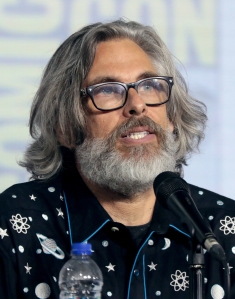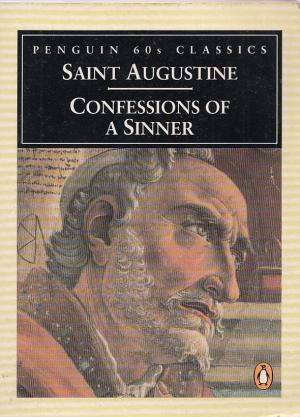When I was a teenager I enjoyed watching Star Trek: The Next Generation. It was shown on BBC2 in the early 90s but as the UK run was a few years behind the US broadcasts, the main way I watched the series was at my best friend Rob’s house. He would buy the VHS tapes of the most up-to-date episodes and we’d watch them together in between playing on his SNES. Ah, nostalgia.

Jean-Luc Picard
ST:TNG was an intelligent and interesting programme, which followed the adventures of Captain Jean-Luc Picard and the crew of the USS Enterprise-D. Watching it in 2020 is quite an experience. Each character is well drawn with clear traits and motivations. The plots often concern moral dilemmas which force the viewer to think over the issues from various points of view. Many of the scenes involve sitting around discussing how to face a problem. Although leaning in a more “liberal” direction it was not done in such a way as to beat you around the head with it.
The latest project in the Star Trek universe is called Picard and is a return to the world and characters of ST:TNG. Airing on Amazon in the UK this series follows the now-former captain of the Enterprise as he tries to uncover the meaning behind a conspiracy involving Romulans and the Federation.
In episode 2 of Picard an admiral dismisses the lead character’s concerns by describing his request to be reinstated as captain as “sheer hubris”. Except, she doesn’t just say that. She adds an expletive into the sentence. This use of profanity is against the tradition and established conventions of the Star Trek universe. Humanity in ST:TNG was portrayed as a society that had risen above the worst aspects of its nature and had moved into a new way of relating to one another. The rare times that mild swear words were used in the Star Trek movies was to show when these ideals were under stress. For an admiral to speak in this way shows that the show has moved into a different world than that of the previous series. Humanity is no longer the rational and enlightened society depicted in the original series. And this may have been a valid story-telling device.

Michael Chabon by Gage Skidmore, WikiCommons.
But that is not why swear words are included in Picard according to comments made by the writer and show runner of Picard, Michael Chabon. It was these comments that piqued my interest.
Chabon is a Pulitzer Prize-winning novelist for The Amazing Adventures of Kavalier & Clay. His work on Star Trek is not his first foray into the world of film and television but it is his first experience of consistent work in the medium. In response to criticism of the swear words used in the series Chabon took to Instagram with his justification. He wrote: “No human society will ever be perfect, because no human will ever be perfect. The most we can do—and as Star Trek ever reminds us, must do—is aspire to perfection, and work to make it so. Until that impossible day, *stuff* is going to continue to happen. And when it does, humans are going to want to swear.”
He continued, “The absence of swear words in Star Trek was never a matter of Federation principle, it was a matter of FCC (Federal Communications Commission) rules. Writers of previous eras had no choice. They were censored. Swearing is one of humanity’s most ancient, sensible, and reliable consolations. Personally I would consider any society that discouraged, banned, or abandoned the use of curse words to be a *______*dystopia.”
This quote is highly revealing. It gives us a glimpse into Chabon’s understanding of the world and what he is doing in Picard. And the simple fact is that he is just another run-of-the-mill iconoclast who thinks it is the height of sophistication to throw off the shackles of a supposedly restrictive past. By giving us his opinion that a society with less swearing in it is a dystopia he is consciously trampling upon the legacy of the Victorian era and, more relevantly to him, mid-20thcentury America. To Chabon, these periods were times of repression where human urges were controlled and repressed.
In contrast, Chabon was born in 1963 and grew up through the times of the sexual revolution. According to an online biography his parents divorced and his mother raised him in a commune where drug use was open and encouraged. Rather than rebel against his upbringing like that generation was told to do, he is proof that it is very difficult to shake off the impact of our parents.
Chabon is wrong in his view on swearing. A society that encourages, allows and keeps hold of curse words is a world that has no desire whatsoever to improve itself. If humanity is to progress, as Chabon indicates he would like to happen in the first part of his quote, then we will only do so when we make a conscious effort to come out of the gutter. It means dedicating ourselves to self-improvement through self-control of our basest urges. It involves restraining ourselves in the company of others so that we do not pollute our common spaces with degrading filth. By having an admiral curse in Picard Chabon is dragging Star Trek down from its previous position as an intelligent, mature and universal tv show into just another piece of detritus flowing through the sewers of popular culture.
Star Trek was once about looking to the stars and seeing our better natures. Now it has crash-landed in the filth of the world. If ever there was a dystopia, it is found in the thinking of Michael Chabon and others like him.
In part two I will explore more fully Chabon’s reasoning that swearing is a moral good and outline my objections.
 “Merely to know that the Son of God was born on earth does not get us very far. We must also know why he was sent into the world and the benefits he has brought us.” – John Calvin in a sermon on Luke 2:9-14.
“Merely to know that the Son of God was born on earth does not get us very far. We must also know why he was sent into the world and the benefits he has brought us.” – John Calvin in a sermon on Luke 2:9-14. One of the best known sections of the Confessions is Augustine’s telling of how he and his friends stole pears from a local garden. They did not steal these pears to eat – most were thrown to pigs. Why, then, did they steal the pears? Here is Augustine’s analysis:
One of the best known sections of the Confessions is Augustine’s telling of how he and his friends stole pears from a local garden. They did not steal these pears to eat – most were thrown to pigs. Why, then, did they steal the pears? Here is Augustine’s analysis: The Medieval Roman Church had descended into great corruption. Bishops received multiple dioceses and never visited them, let alone preached in their churches. The common people were barred from true partaking of the Lord’s Supper by the use of Latin and the denial of the cup. Many innovations had been added to the faith of the church. One such innovation – that of purgatory – led to a system whereby people could buy the prayers of monks to knock a few years off for themselves and their loved ones. It just so happened that this innovation also raised a fair few coins for the building of a fancy new basilica in Rome.
The Medieval Roman Church had descended into great corruption. Bishops received multiple dioceses and never visited them, let alone preached in their churches. The common people were barred from true partaking of the Lord’s Supper by the use of Latin and the denial of the cup. Many innovations had been added to the faith of the church. One such innovation – that of purgatory – led to a system whereby people could buy the prayers of monks to knock a few years off for themselves and their loved ones. It just so happened that this innovation also raised a fair few coins for the building of a fancy new basilica in Rome.